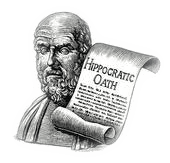Leadership and empowerment have been the most incredible realization I have had in my life. I am the founder of a small company and have always known that I was doing something right because every year I have had profit and have grown. I wasn’t sure really what was my special key to success but am now recognizing that it may be because I empower the people that come in my workspace. Reading about leadership and its definition I am recognizing that I empower, therefore; move my followers to accomplish more than what is expected. (Northouse,7th ed, pg.5) Leadership is described as a process involving influence in a group situation to achieve common goals. (Northouse, 7th ed, pg.6). The legitimate question I ask myself, is why am I a leader? Was I born with some special intelligence, is it because I am confident? Do I have respect because I have a beautiful workspace and I am the boss? Is the reason I have succeeded a little bit of both?
The trait perspective toward leadership is what I always valued as the reason why I was good at leading. The trait perspective suggests that certain individuals have special innate or inborn qualities that make them leaders. (Northouse,7th ed, pg.7) Explained in Northouse these traits are what enable me to induce others to accomplish tasks. My personality has shown strong Cognitive complexity. Cognitive complexity is comfort in dealing with uncertainty. The extent to which a person comprehends, utilizes and is comfortable with separate elements or situations and can draw connections or relationships among them. (Friedman & Schustack, 7th ed) A trait that I was born with is shown in my comfort in dealing with situations. Having high self-esteem; Therefore, being self-confident in resolving problems and situations that are uncertain, makes me feel that I am assuring my colleagues and influencing them. (Northouse, 7th ed, pg.24)
Although the capacity to influence someone is described by Northouse as a concept of power. Power being the capacity or potential to influence. (pg.10) Kellerman introduced the idea that power is no longer the synonymous of leadership. With French and Raven’s work power has been categorized in two major kinds: position power and personal power. The first derives from rank or position in this case me being the boss and having constructed the beautiful building we work in. The second derives from being seen by followers as likable and knowledgeable. I have been recognized as having personal power because I have resolved client’s issues as promised. Besides resolving issues, I have made a name for myself for my skills and trustworthiness. (Northouse, 7th ed, pg. 12)
The position I am currently in now may be viewed as Position power; that like legitimate power, is associated to my status and my authority. (Northouse, 7th ed, pg.10, table 1.1) I direct clients to the colleagues that I believe can take care of them best. I am in charge of payments and payroll and according to my discretion I can hire or fire my followers. Because I am identified as a teacher, my competence is sought for by my followers, I can recognize this as a definition of referent power position or expert power. Being seen as likable and knowledgeable by one’s followers like in this case is defined as having personal power. (PSU WC, 2020, Lesson 2)
Power can be displayed or used in many ways the way I use “my” power, is to influence the individuals that work with me towards attaining common goals. By teaching them and wanting them to be better I respect them and set myself at their level. My leader’s intellectual ability in this way does not differ from my subordinates/colleagues. (Northouse, 7th ed, pg.24) I also apply Social Intelligence this is a theory that finds its importance in the interactions of people. This means using my intelligence with the environment, my colleagues. (PSU WC, 2020, Lesson 2) The reason I apply my social intelligence allows me to be an effective leader without necessarily displaying power.
The responses I have given in certain situations, the way I have influenced in a confident way yet being mutual, have been the determinant factor of having followers that are trustworthy and loyal. The loyalty has been the result of empowering my followers of tools so they can attain goals in common interest and feel satisfied. My interest in making work hours and being flexible has shown my trust in them. Social Intelligence has been displayed in my awareness and has been shown in the different contingencies that have been presented in my 11 years of business so far. If I can evaluate myself and say I found the key to my success, I would say that being a boss and my position as a leader, has come thanks to a strong fellowship. So, my leadership is the consequence of a Transformational process; this is described by Northouse (7th ed) as what moves followers to accomplish more that what is expected of them. (pg.5) This fellowship has given me the strength to build my business and be trusted. Leadership has come from the role I have built for myself over the years using my qualities and traits, in the correct situations.
References:
Friedman, H. s, & Schustack, M. w. (n.d.). Personality classic Theories and Modern Research (7th ed.). Pearson.
Northouse, P. G. (n.d.). Leadership: theory and practice (7th ed.). SAGE Publications, Inc.
Pennsylvania State University World Campus (2020). PSYCH 485 Lesson 2: Trait Approach. Retrieved from https://psu.instructure.com/courses/2040131/modules/items/28001674

 One of the distinguishing characteristics of the various healthcare professions is the code of ethics that binds practitioners to “do no harm” – the
One of the distinguishing characteristics of the various healthcare professions is the code of ethics that binds practitioners to “do no harm” – the